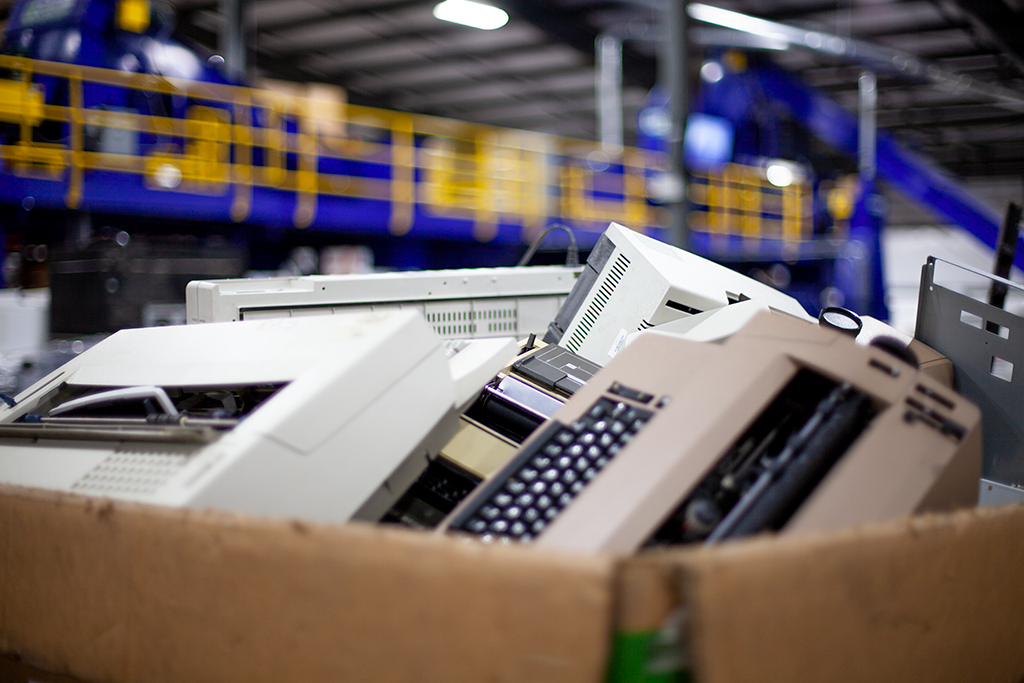The recycling market is in a crisis.
In January of 2018, China enacted its new recycling imports policy, essentially putting an end to decades-long United States recycling practices. China, which previously imported a whopping forty-five percent of the world’s plastic waste for recycling, now refuses to accept any imports which are not 99.5% pure. This is due to the growing environmental concerns associated with processing these contaminated plastics. Now, countries which relied on China for plastic recycling have been forced to seek alternatives. The bulk of the responsibility has fallen on other Asian countries unequipped to carry the burden China has left behind. The US, often unable to meet the 99.5% purity requirement, sends many recycled goods to the landfills. Recycling is no longer the lucrative business it once was. Instead, recycling companies lose money.
Part of the US’s crisis has to do with “single-stream” recycling. Years ago, in order to recycle, households were forced to separate recyclable goods by type: glass, plastic, metal, and paper. This method of curbside recycling made it easier for recycling companies to process pure batches of recyclable materials; however, this was much more tedious for the average household, and public participation in recycling was low. But when the US introduced single-stream recycling in the 1990s, participation greatly increased. “Single-stream” refers to the now-common practice of placing all recyclable goods into the same bin for collection. Rather than placing the responsibility on the consumer, it is now the recycling plant’s job to separate and process recyclable materials.
While single-stream recycling’s convenience made recycling more accessible to the public, it has created a challenge for the industry. Processing all recyclable goods in one bin increases the risk of contaminants, which can weaken batches of recycled plastic and render it unusable. Many uninformed consumers also place non-recyclable materials in their recycling bins, posing many problems for recycling machines. Garden hoses and soft plastics such as plastic bags are among the most common offenders, both of which can become tangled in machinery and endanger workers. Recycling plants now struggle to process pure batches of plastic that can be refined and reused, and the criteria of China’s new policy is almost impossible to achieve. Even if your home maintains good recycling practices, your efforts may be for naught.
As awareness of this problem grows, many have become discouraged.
How can we be sure our recycling is being processed properly? What is the point of recycling if our waste may end up in a landfill anyway?
The first and most important step is education. To avoid contamination, educate yourself on what can and cannot go in your recycling bin. This varies by county, so please pay attention to your local recycling and waste management practices. Pay attention to the numbers on your plastics, and be aware of which numbers your local recycling collectors can take. Avoid “wishful” or “aspirational recycling”–if you aren’t sure whether something can be recycled, don’t put it in your recycling bin. Educate your friends and family on these rules, and encourage them to be aware of their local regulations. The more people practice good recycling habits, the fewer contaminants end up in recycling machines.
When you can, reduce and reuse first. Remember, “recycle” is the third part of the triangle. While it can be hard to avoid things like single-use plastic packaging, look for ways to reduce the amount of waste your household produces, and reuse what you can. Bring reusable shopping bags to the grocery store. Use reusable water bottles instead of buying disposable plastic.
Be aware of your resources. While plastic bags don’t belong in your curbside bin, they are recyclable. I f you have the common plastic bag full of plastic bags you have no idea what to do with somewhere in your kitchen, look for special bins at your local grocery store to deposit your soft plastics. Instead of throwing old light bulbs away (which is not only wasteful, but also may pose a chemical hazard), find out if your recycling center takes light bulbs, and what kinds of light bulbs they take. While these solutions may require an extra trip, they help keep curbside recycling pure and allow you peace of mind.
Look for companies with trustworthy recycling processes. EPC has a strict no-landfill policy for its e-waste. When you take your electronics and appliances to EPC, you can be confident that your e-waste will be responsibly recycled and processed for reuse. Visit our website at https://www.epcusa.com/services/itad/asset-disposition/#recycling for more information about our recycling process.
The problems facing the recycling industry are large, and it may be tempting to give up and dump everything in the trash. But you can take responsible steps to help recycling companies process your waste.
More information on the recycling crisis, and what you can do to help:
National Geographic: Plastic Recycling Is Broken. Here’s How to Fix It.
